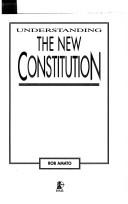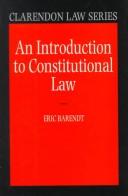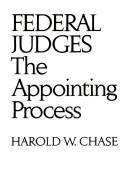| Listing 1 - 6 of 6 |
Sort by
|

ISBN: 1868256308 Year: 1994 Publisher: Cape Town Struik
Abstract | Keywords | Export | Availability | Bookmark
 Loading...
Loading...Choose an application
- Reference Manager
- EndNote
- RefWorks (Direct export to RefWorks)
Constitutional law --- 342 --- Zuid-Afrika --- Publiek recht. Staatsrecht --- South Africa --- Politics and government

ISBN: 0198762542 9780198762546 Year: 1998 Publisher: Oxford: Oxford university press,
Abstract | Keywords | Export | Availability | Bookmark
 Loading...
Loading...Choose an application
- Reference Manager
- EndNote
- RefWorks (Direct export to RefWorks)

ISBN: 0816606471 Year: 1972 Publisher: Minneapolis University of Minnesota Press
Abstract | Keywords | Export | Availability | Bookmark
 Loading...
Loading...Choose an application
- Reference Manager
- EndNote
- RefWorks (Direct export to RefWorks)
Book
ISBN: 9026813791 9026813783 9789026813788 Year: 1983 Publisher: Deventer: Kluwer,
Abstract | Keywords | Export | Availability | Bookmark
 Loading...
Loading...Choose an application
- Reference Manager
- EndNote
- RefWorks (Direct export to RefWorks)
Public law. Constitutional law --- Netherlands --- Constitutional law --- Droit constitutionnel --- 342.4 <492> --- 342.4.04 <492> --- Grondwetsherziening. Staatshervorming--Nederland --- 342 --- Nederland --- NL / Netherlands - Nederland - Pays Bas --- 342.4 --- V1 - Droit constitutionnel - Grondwettelijk recht --- GRONDWETTELIJK RECHT V 1 --- Publiek recht. Staatsrecht --- Grondwet. Staathervorming. --- 342.4.04 <492> Grondwetsherziening. Staatshervorming--Nederland --- Grondwet. Staathervorming --- Constitutional law - Netherlands
Book
ISBN: 9780198705789 0198705786 Year: 2014 Publisher: Oxford: Oxford university press,
Abstract | Keywords | Export | Availability | Bookmark
 Loading...
Loading...Choose an application
- Reference Manager
- EndNote
- RefWorks (Direct export to RefWorks)
The denial of voting rights to certain types of persons continues to be a moral problem of practical significance. The disenfranchisement of persons with mental impairments, minors, noncitizen residents, nonresident citizens, and criminal offenders is a matter of controversy in many countries. How should we think morally about electoral exclusions? What should we conclude about these particular cases? This book proposes a set of principles, called the Critical Suffrage Doctrine, that defies conventional beliefs on the legitimate denial of the franchise. According to the Critical Suffrage Doctrine, in some realistic circumstances it is morally acceptable to adopt an alternative to universal suffrage that would exclude the vast majority of sane adults for being largely uninformed. Thus, contrary to what most people believe, current controversies on the franchise are not about exploring the limits of a basic moral right. Regarding such controversies, the Critical Suffrage Doctrine establishes that, in polities with universal suffrage, the blanket disenfranchisement of minors and the mentally impaired cannot be justified; that noncitizen residents should be allowed to vote; that excluding nonresident citizens is permissible; and that criminal offenders should not be disenfranchised-although facilitating voting from prison is not required in all contexts. Political theorists have rarely submitted the franchise to serious scrutiny. Hence this study makes a contribution to a largely neglected and important subject.
Suffrage --- Political rights, Loss of --- Voting --- Droits politiques --- Vote --- Moral and ethical aspects --- Perte --- Aspect moral --- Suffrage. --- Political rights, Loss of. --- #SBIB:324H42 --- Polls --- Elections --- Politics, Practical --- Social choice --- Loss of political rights --- Punishment --- Citizenship, Loss of --- Infamy (Law) --- Franchise --- Right to vote --- Voting rights --- Political rights --- Plebiscite --- Representative government and representation --- Moral and ethical aspects. --- Politieke structuren: verkiezingen --- Law and legislation --- Politieke systemen --- Publiek recht. Staatsrecht --- Political systems --- Public law. Constitutional law --- Balloting
Book
ISBN: 9781107006812 1107006813 9780511835193 1139097709 1107221625 0511835191 1139103539 9786613341945 1139101072 1139101730 1139099051 1283341948 1139099736 9781139101073 9781139101738 9781139097703 9781283341943 6613341940 9781139103534 9781139099059 9781139099738 Year: 2011 Publisher: Cambridge ; New York : Cambridge University Press,
Abstract | Keywords | Export | Availability | Bookmark
 Loading...
Loading...Choose an application
- Reference Manager
- EndNote
- RefWorks (Direct export to RefWorks)
European studies frequently regard the economic and social dimensions of EU integration as diametrically opposed, maintaining that this state of affairs is beyond change. This edited collection challenges this perceived wisdom, focusing on the post-Lisbon constitutional landscape. Taking the multi-layered polity that is Europe today as its central organising theme, it examines how the social and the economic might be reconciled under the Union's different forms of governance. The collection has a clear structure, opening with a theoretical appraisal of its theme, before considering three specific policy fields: migration policy and civic integration, company law and corporate social responsibility and the role of third sector providers in public healthcare. It concludes with three case studies in these fields, illustrating how the argument can be practically applied. Insightful and topical, with a unique interdisciplinary perspective, this is an important contribution to European Union law after the Lisbon Treaty.
Public law. Constitutional law --- Economic law --- European law --- Social law. Labour law --- European Union --- Constitutional law --- Law --- Social integration --- International unification --- Economic aspects --- European Union countries --- Economic policy --- -Law --- -European Union countries --- -Social integration --- -342 --- 338.2 --- EEC / European Union - EU -Europese Unie - Union Européenne - UE --- 334.151.50 --- 334.154.0 --- 312.0 --- 342.02094 --- Ud3 --- Inclusion, Social --- Integration, Social --- Social inclusion --- Sociology --- Belonging (Social psychology) --- Acts, Legislative --- Enactments, Legislative --- Laws (Statutes) --- Legislative acts --- Legislative enactments --- Jurisprudence --- Legislation --- Constitutional limitations --- Constitutionalism --- Constitutions --- Limitations, Constitutional --- Public law --- Administrative law --- -Economic policy --- Publiek recht. Staatsrecht --- Economische politiek en planning (alg.) --- Sociaal beleid : algemeenheden. --- Gemeenschapsrecht. Integratie van de wetgeving: algemeenheden. --- Volksverhuizingen. Kolonisatie: algemeenheden. --- Interpretation and construction --- International unification. --- Economic policy. --- 342 --- Volksverhuizingen. Kolonisatie: algemeenheden --- Sociaal beleid : algemeenheden --- Gemeenschapsrecht. Integratie van de wetgeving: algemeenheden --- General and Others --- Constitutional law - European Union countries --- Law - European Union countries - International unification --- Law - Economic aspects - European Union countries --- Social integration - European Union countries --- European Union countries - Economic policy
| Listing 1 - 6 of 6 |
Sort by
|

 Search
Search Feedback
Feedback About UniCat
About UniCat  Help
Help News
News